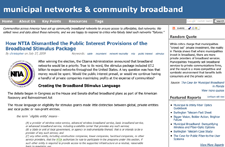The Federal Government collects a lot of information that impacts all of our lives – from information about pollution to disease outbreaks to how our money is spent. Data.gov may be a model for how any government can make public information more accessible to citizens.
Wired.com interviewed the U.S. government’s first CIO (Chief Information Officer) – Vivek Kundra to understand his thoughts on how to accomplish this task. One of the main issues was making raw data available and letting users add tags to classify it.
Kundra: The core principles are using open standards, presenting raw data, and distributing it in as many formats as possible. Public policy decisions are made using the data anyway, but the raw data is important because if it is massaged too much, you can lose the big issues.
Wired: Sometimes more data confuses rather than clarifies, especially if it’s raw or presented in some clumsy spreadsheet, which is typically how government data has been released in the past, if at all.
Kundra: But we now have the ability to use data in ways we couldn’t before, and to do it in a machine-readable way where we can not only spot trends and make intelligent decisions but make applications that create value and economic opportunities. The perfect example at a local level is in DC, where you can download an application that lets you know—based on where you’re standing—what the closest Metro station is, when the next train is coming, and, if you like Mexican food, where the closest Mexican restaurant is. That’s built on one subset of data feeds, and there are hundreds of others.
Making data available is an important step to an informed public.



